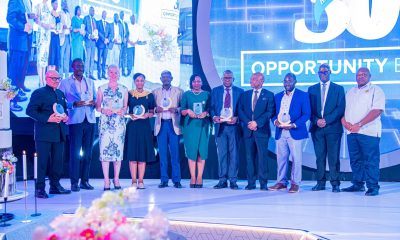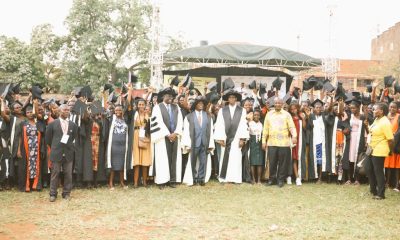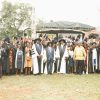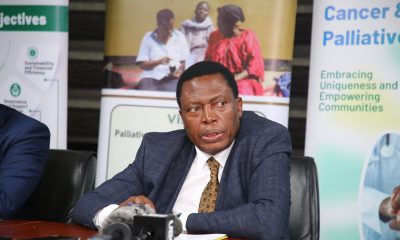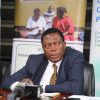News
Government promises to end marginalization of PWDs
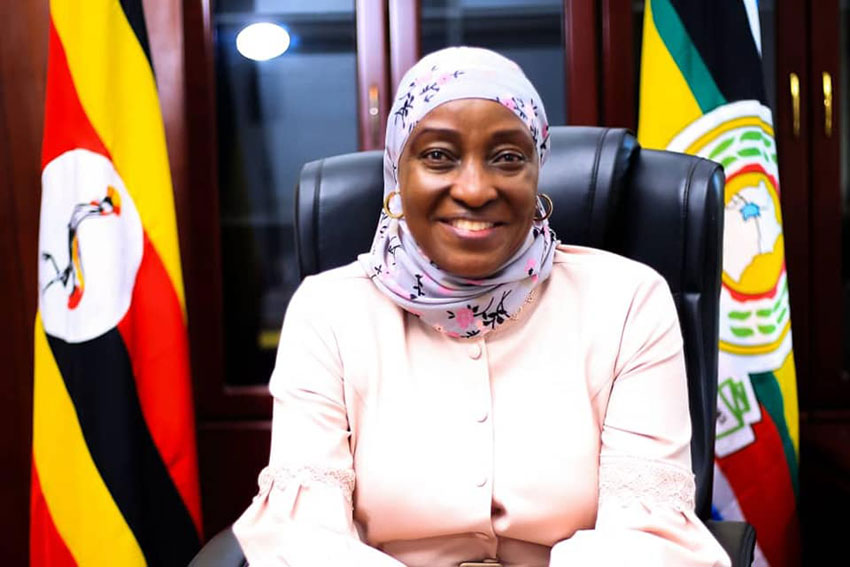
Minister for the eldery and disabled Sarah Kanyike
Kanyike said that one of the very first steps is to popularize sign language so that every government body and public institution at least carters for those with hearing and visual disabilities.
She added that her ministry has embarked on the process of translating the the Persons With Disabilities Act 2020 into audio visual formats.
The Minister made these remarks on Tuesday while addressing journalists on government’s achievements on ending the plight of PWDs in preparation to commemorate the International Week for the Deaf (IWD) which is being commemorated between September 21 to 25
In Uganda, the celebrations were held in Masaka under the theme “Sign Language Rights for All.”
The Minister says that PWDs face many challenges especially in the education sector where learners with hearing impairments are not fully catered for.
“There are still some challenges especially in the education sector where learners with hearing disabilities have found it difficult to access E-learning especially during the COVID-19 pandemic,” she said.
Her comments came days after members of the PWDs have come out to condemn their marginalization especially during the recent home school programmes by the ministry of education.
In regard to this, the Minister revealed that the Ministry of Education and Sports (MoES) is tirelessly coming to establishment of ways on how this can be solved.
“The ministry of Education and sports under the Special Needs Department is working out modalities on how to increase access to learning for the deaf learners,” she reveled.
She reveled that they are closely working with the Ministry of Public Service to ensure sign language services are mainstreamed in all public services.
“This will be through recruitment of sign language interpreters at key points where deaf people need these services but also conduct on job training for key government sectors like in health, judiciary, police, community development among others” she said.
“The public should note that these interventions will be actualized in a progressive manner, I am glad that the Legal and Policy frameworks are already in place to support the implementation,” she added.
Kanyike however, appealed to the general public to support and protect the linguistic identity and cultural diversity of all deaf people and other sign language users.
“Let us work together as government also remains committed to upholding the rights of the deaf persons through enacting of laws and development of policies that enhance realization of their rights, she said.
According to the Uganda Bureau Of Statistics (UBOS), the percentage of persons with hearing impairments is 3.1 percent of the percentage of persons with disabilities of 12.4 percent hence a need to promote their rights given the fact that they exist.
The constitution goes ahead to provide for development of sign language for the deaf as a mode of communication in the National Objectives and Directive Principles of State Policy Number 14, on cultural Objectives.
Meanwhile, Joseph Mbulamwana, the Executive Director of Uganda National Association of the Deaf (UNAD) noted that popularizing sign language use shouldn’t be just a mere statement but that it requires a serious campaign that reaches all spheres including provision of social services citing the example of Parliament Plenary Debates that are not interpreted to the deaf irrespective of being aired live on TVs.
“It’s shameful that Uganda the first country in the world to constitutionally recognize sign language is still lagging behind in its development and promotions,” he said.
He however noted with concern that sign language is still being excluded from budgets and plans which is the same case to provision of sign language interpreters in service delivery.
“This in summary means deaf persons are excluded and their human rights violated. There can’t be human rights promotion to the deaf persons without sign language,” he said.
Mbulamwana also faulted government for not acting in a timely manner citing that it failed on providing sign language interpreters in online classes during the covid-19 pandemic.
“Where are the interpreters during teachings online? Are there no deaf students in all those classes? What remedial or alternative plan has the government got in place to address the expected poor performance of these deaf students,” he noted.
Mbulamwana however noted key issues they want government to address to ensure they are no longer left out in attaining Sustainable Development Goals (SDGS) and a middle income status.
“We demand for inclusion in all poverty reduction programmes and in the planning, implementation and monitoring of development ventures such as vision 2040, SDGs, National Development plan 2 and government and institutions budgets at all levels,” he said.
He as well noted the urgent need to have sign language taught as a subject from primary one not secondary as it’s the case now.
He appealed to leaders at all levels to fully take part in supporting and protecting the linguistic identity and cultural diversity of all deaf people and other sign language users.
“Leaders need to reaffirm their commitment to promote sign language if we are to achieve inclusive development, reduce vulnerability, promote human rights for all,” he said.
Comments









